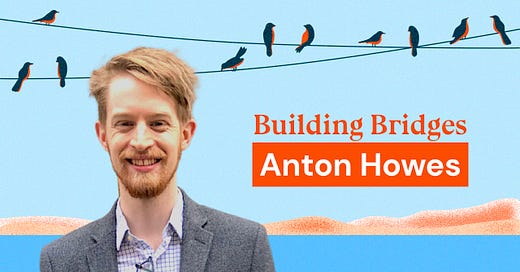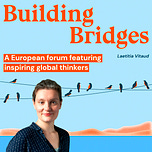For this new episode of the Building Bridges podcast, I’m happy to share my interview with Anton Howes, a “historian of innovation”, whose book Arts & Minds: How the Royal Society of Arts Changed a Nation tells the story of a remarkable British institution, the RSA, of which he became historian-in-residence. We talked about the industrial revolution and how innovation works.
Anton Howes is fascinated with the process of invention and what fuels it. I recommend his Substack newsletter, Age of Invention, which is full of interesting pieces about “the origin of patents”, “the birth of the business corporation”, and the maritime technology of the late 16th century.
His current research focuses on why innovation accelerated in Britain in the 18th century, i.e. why the Industrial Revolution happened there and not elsewhere:
One of my key findings is that innovation is a practice that spreads from person to person. I argue that people became innovators because they adopted an improving mentality - and that Britain experienced an acceleration of innovation because its innovators were committed to evangelising that mentality further.
I asked Anton why Britain became the cradle of the Industrial Revolution, if it could have happened elsewhere, who were the entrepreneurs of that time, what motivated them, and what Britain’s institutional recipe was. Of course he talked about the RSA, this “extraordinary society that has touched all aspects of British life”:
From its beginnings in a coffee house in the mid-eighteenth century, the Royal Society for the Encouragement of Arts, Manufactures and Commerce has tried to improve British life in every way imaginable. It has sought to influence how Britons work, how they are educated, the music they listen to, the food they eat, the items in their homes, and even how they remember their own history.
If Britain prospered the way it did, it’s because it developed powerful institutions—norms, best practices & organisations like the RSA—to sustain that prosperity. That history is full of lessons for today as it helps to understand how innovation works and how we can encourage it.
I hope you enjoy listening to this podcast! Do not forget to share it with people who might be interested 🏭💡
Follow Building Bridges on Twitter! You can listen to all our podcasts on Apple Podcasts and Spotify.
Also Building Bridges is part of a network of Substack newsletters, which you may want to discover: there’s my Laetitia@Work (about the future of work, with a feminist perspective), and Nicolas’s Colin European Straits (about the Entrepreneurial Age, viewed from Europe).
(Credit: Franz Liszt, Angelus ! Prière Aux Anges Gardiens—extrait du disque Miroirs de Jonas Vitaud, NoMadMusic.)














Share this post